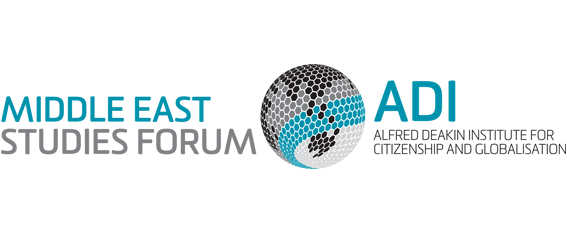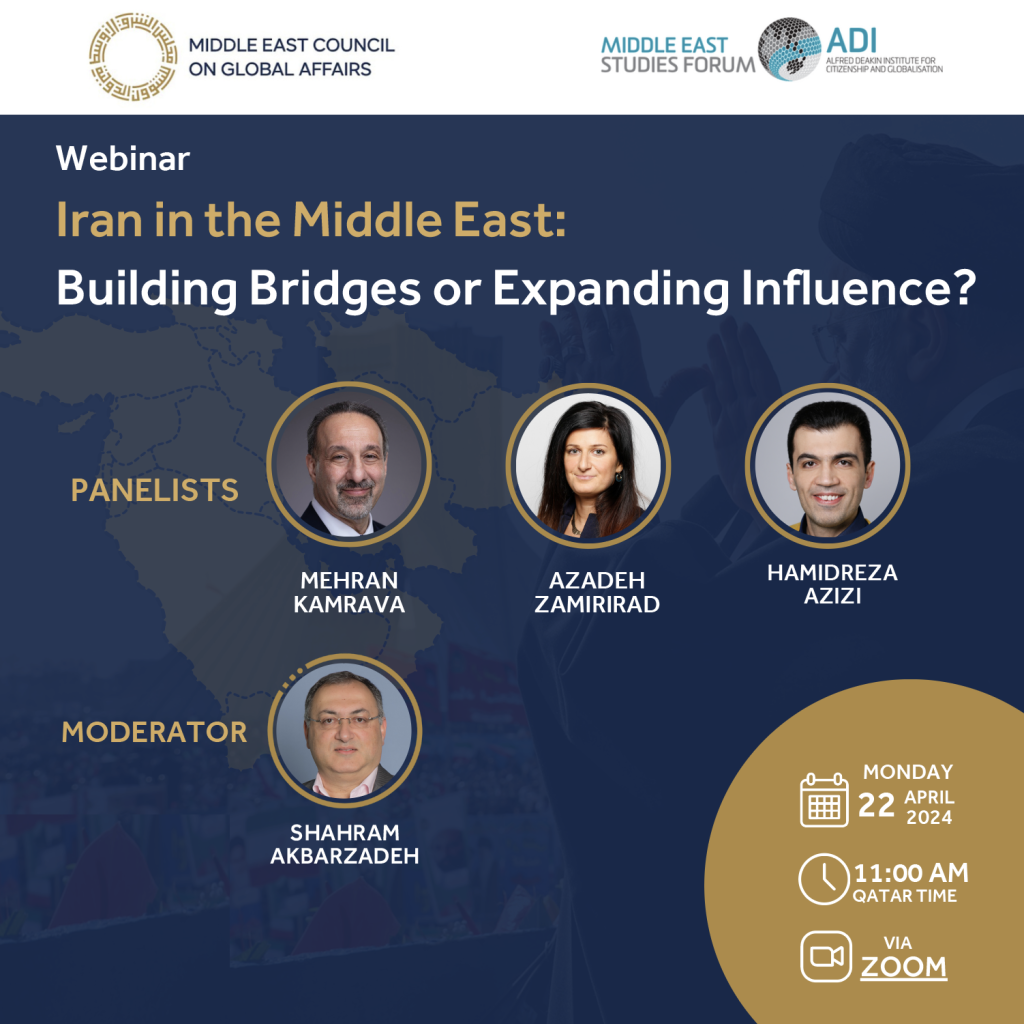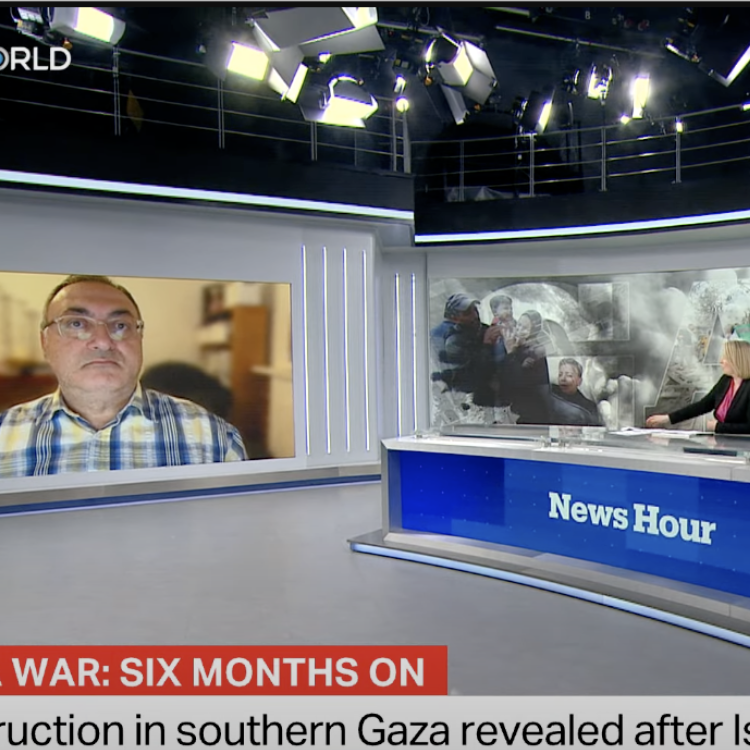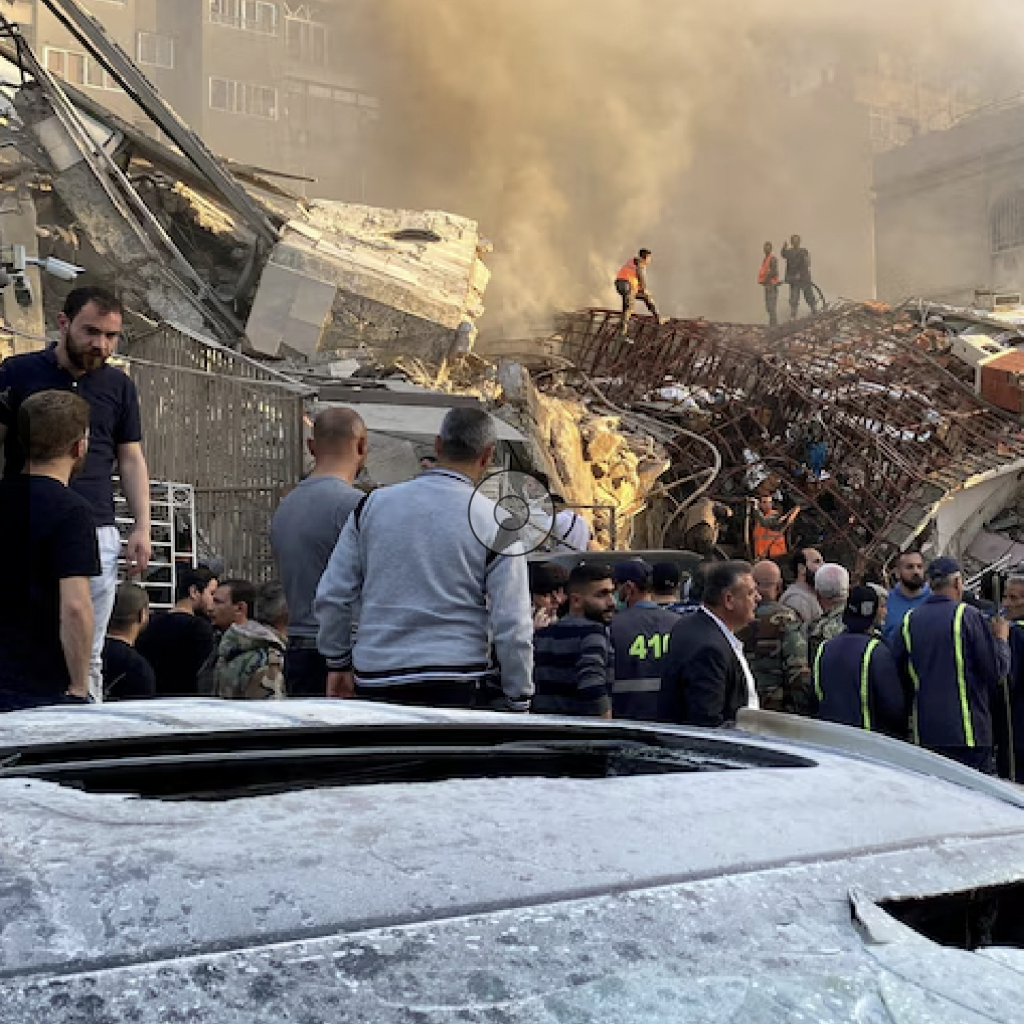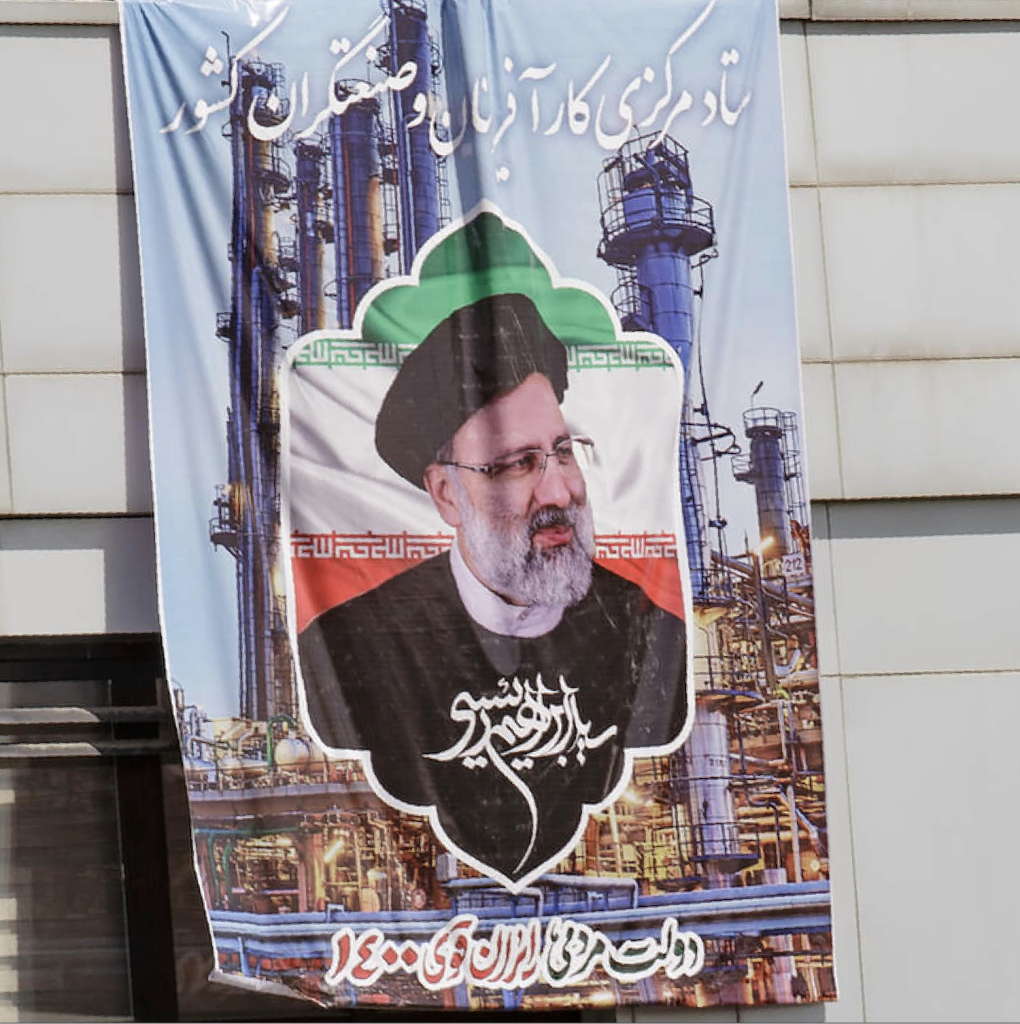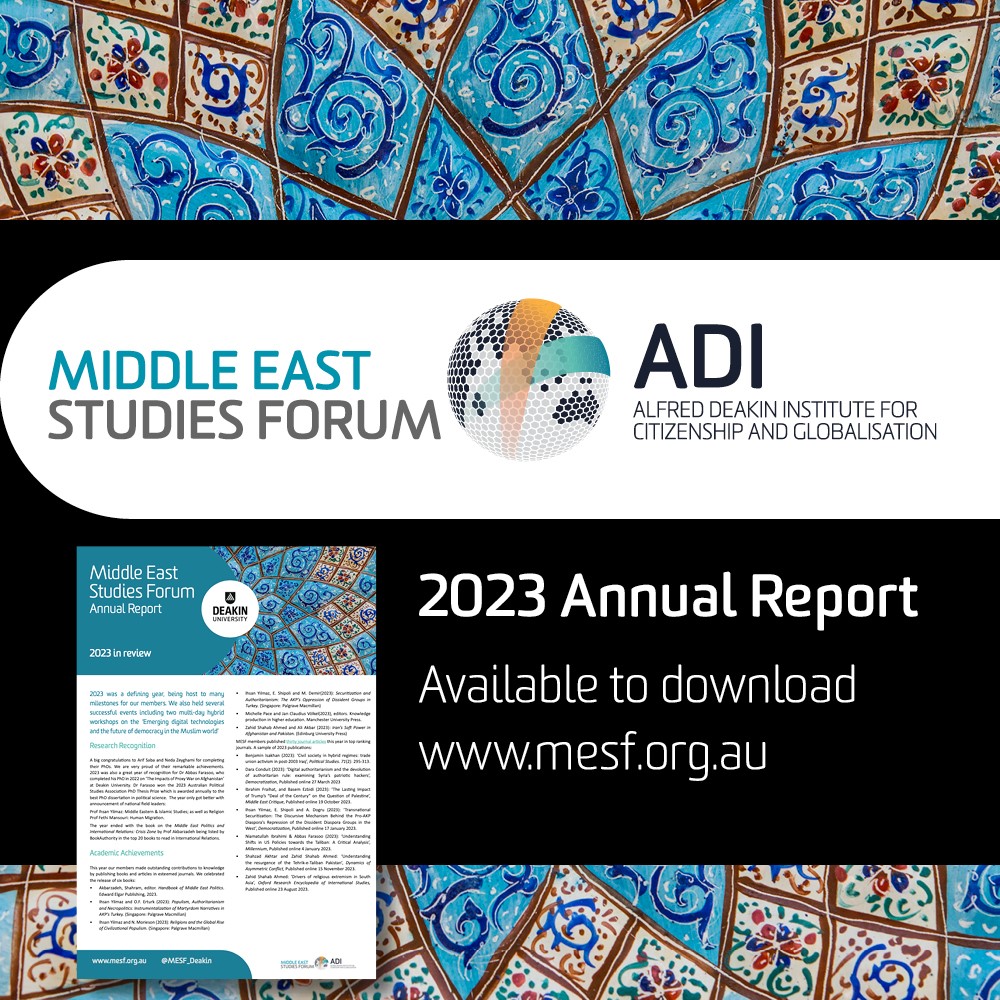On 22 April 2024, Professor Shahram Akbarzadeh moderated an international webinar on Iran in the Middle East. This session was co-hosted by the Middle East Council on Global Affairs (Doha) an the Middle East Studies Forum at Deakin University. The panel included Dr Azadeh Zamirirad, Deputy Head of Africa and the Middle East, German Institute for International and Security Affairs (SWP), Prof Mehran Kamrava, Professor of Government, Georgetown University in Qatar & Director of Iranian Studies Unit at the Arab Center for Research & Policy Studies, and Dr Hamidreza Azizi, Visiting Fellow, German Institute for International and Security Affairs (SWP), and Non-resident Fellow, Middle East Council on Global Affairs. The panel discussed how conflict between Iran and Isarel impacts Iran’s relations with its neighbours and its implications for its global agenda.
